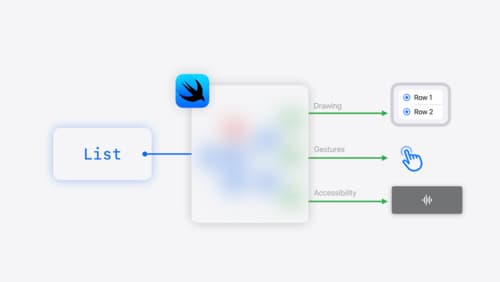Is SwiftUI better than UIKit?
Asked on 2024-07-31
1 search
The question of whether SwiftUI is better than UIKit depends on various factors, including the specific needs of your project and your familiarity with each framework. Here are some key points from the WWDC sessions that might help you decide:
-
Ease of Use and Learning Curve:
- SwiftUI is designed to be easy to learn and use, with a declarative syntax that allows you to describe the UI you want, and SwiftUI takes care of the details (Platforms State of the Union).
- SwiftUI enables you to build apps with less code, which can speed up development and make it easier to maintain (SwiftUI essentials).
-
Cross-Platform Development:
- SwiftUI allows for code sharing across multiple Apple platforms, making it easier to create apps that work on iOS, macOS, watchOS, tvOS, and visionOS (SwiftUI essentials).
- It is particularly useful for building spatial apps on visionOS and has been adopted broadly within Apple for various apps and system experiences (Platforms State of the Union).
-
Interoperability:
- SwiftUI offers seamless interoperability with UIKit and AppKit, allowing you to use views and view controllers from these frameworks within your SwiftUI code (SwiftUI essentials).
- This interoperability is crucial for apps that need to leverage existing UIKit or AppKit components while adopting SwiftUI incrementally (Platforms State of the Union).
-
Advanced Features and Customization:
- SwiftUI provides a wide range of built-in capabilities and allows for extensive customization using modifiers and protocols (Platforms State of the Union).
- It also supports advanced features like custom containers, mesh gradients, and scrolling customizations (Platforms State of the Union).
-
Declarative Syntax and State Management:
- SwiftUI's declarative syntax and state-driven views make it easier to manage the state of your app and create complex UIs (SwiftUI essentials).
In summary, SwiftUI offers many advantages, especially for new projects or when you want to share code across multiple platforms. However, UIKit and AppKit still have their place, particularly for projects that require specific features or need to integrate with existing codebases. The choice between SwiftUI and UIKit will depend on your specific requirements and the context of your project.

Platforms State of the Union
Discover the newest advancements on Apple platforms.

SwiftUI essentials
Join us on a tour of SwiftUI, Apple’s declarative user interface framework. Learn essential concepts for building apps in SwiftUI, like views, state variables, and layout. Discover the breadth of APIs for building fully featured experiences and crafting unique custom components. Whether you’re brand new to SwiftUI or an experienced developer, you’ll learn how to take advantage of what SwiftUI has to offer when building great apps.
